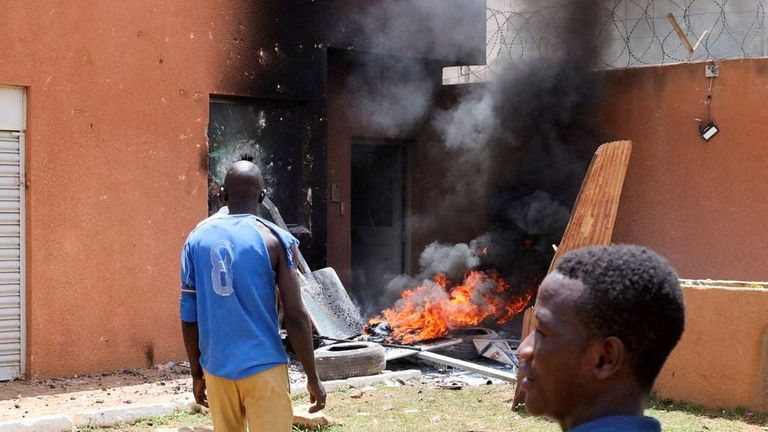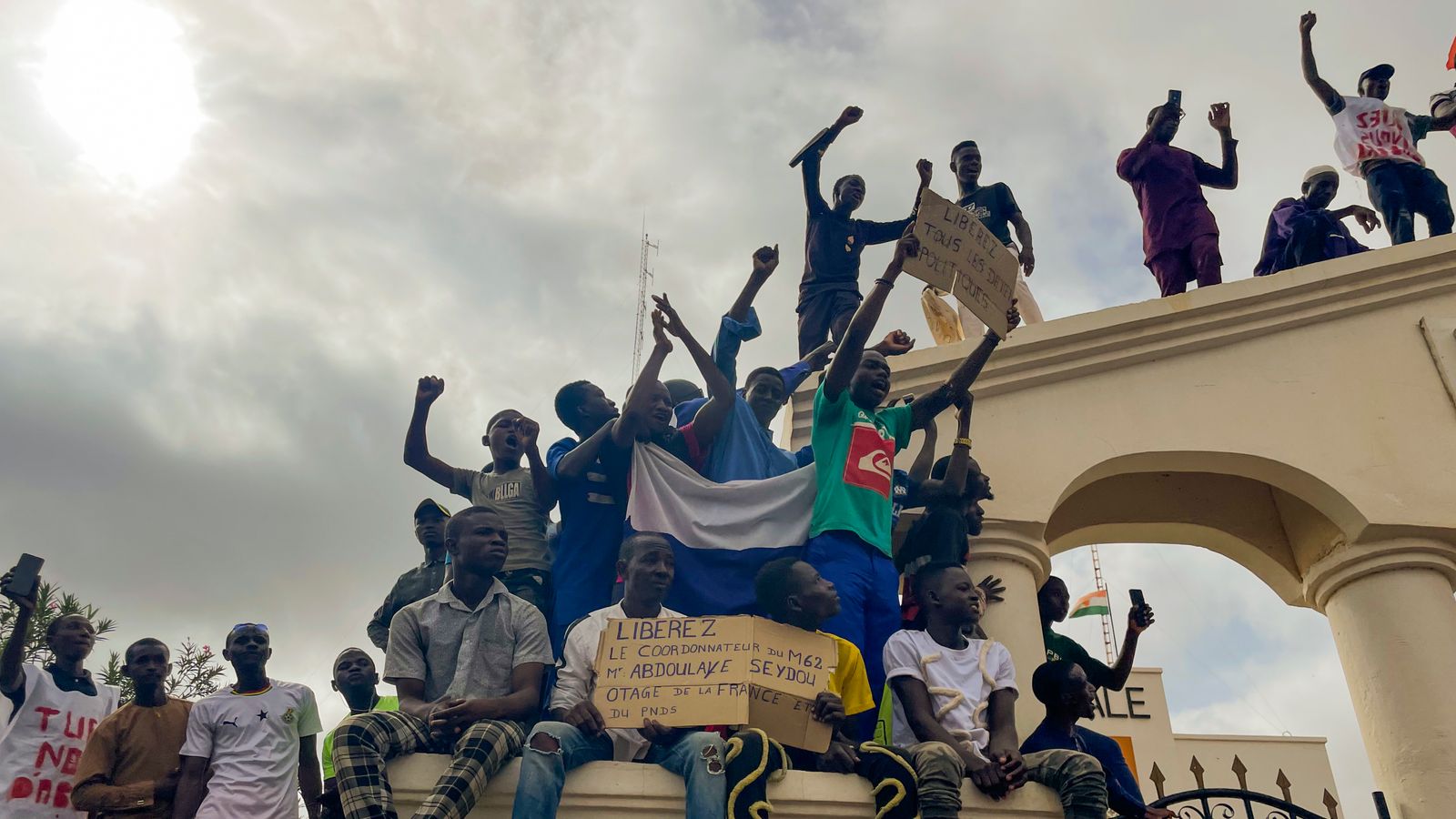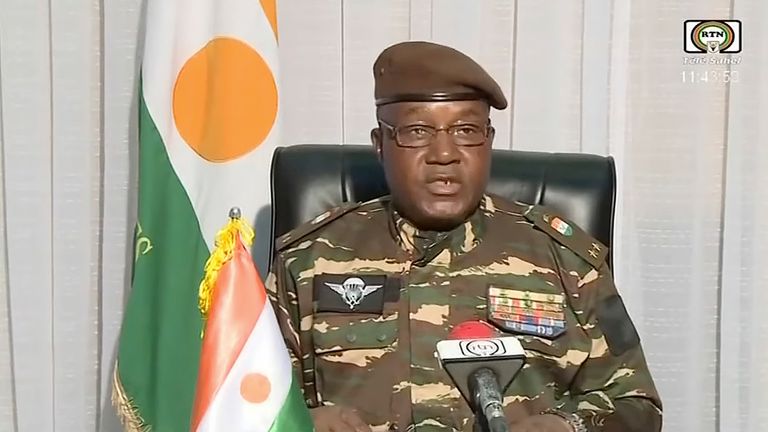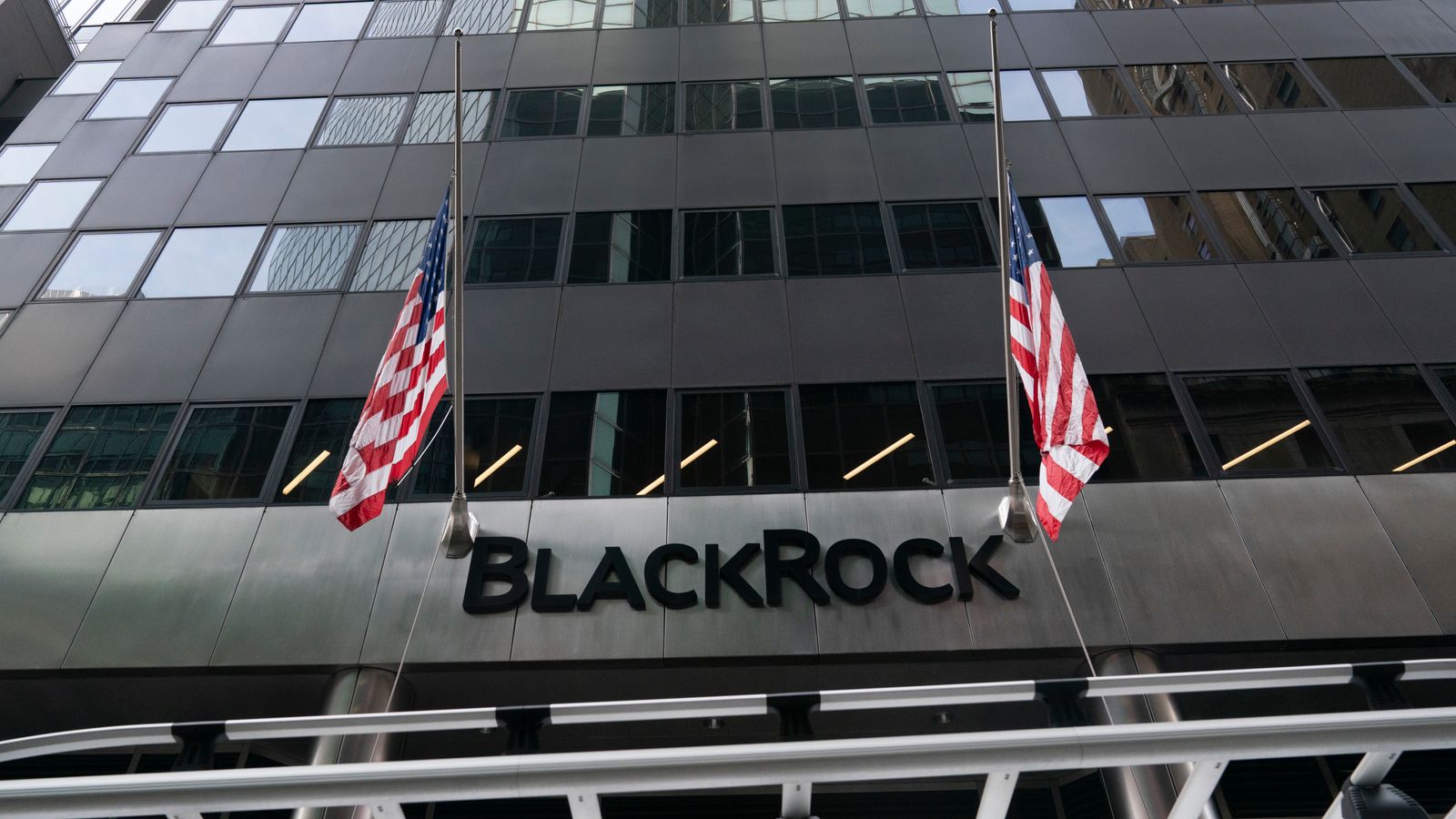
Britain is reducing the number of staff at its embassy in Niger following last week’s military coup amid the threat of pro-junta demonstrations.
A group of 14 Britons have arrived in France after being flown out of the West African country in the wake of the takeover by the army and the toppling of the democratically elected government led by Mohamed Bazoum.
The US has also ordered the partial evacuation of its diplomatic post in the capital Niamey.
France and Italy had previously announced plans to fly their citizens out of Niger.
In a statement, the UK Foreign Office said: “There has been a military takeover in Niger, which has led to protests and unrest.”
With a further pro-junta demonstration planned to mark Niger’s independence from France, which ruled the country as a colony until 1960, it added: “Protests can be violent and the situation could change quickly without warning.”
A previous rally led to an attack on the French embassy with its doors set on fire and the building stoned.
The UK Ambassador Catherine Inglehearn and a core team remain on the ground in Niger to support “the very small number of British nationals still there”, the Foreign Office said.
Meanwhile, Niger’s neighbours Mali and Burkina Faso have warned other neighbouring nations against military intervention against the mutineers.
The West African regional body – known as ECOWAS – has previously threatened the use of force if coup leaders in Niger do not reinstate the country’s elected president.
But Mali and Burkina Faso, themselves both run by military governments, have said they will consider any direct intervention in Niger as a “declaration of war” against them.
The two countries – who are both currently suspended from ECOWAS – have also denounced the regional body’s economic sanctions against Niger as “illegal, illegitimate and inhumane” and have refused to apply them.
ECOWAS suspended all commercial and financial transactions between its member states and Niger, as well as freezing Nigerien assets held in regional central banks, in the wake of the putsch.
Guinea, another country under military rule since 2021, has also shared its support of Niger’s junta and urged ECOWAS to “come to its senses”.
Read more:
Coups across the Sahel region explained
How Wagner is providing cover for Putin in Niger
Toppled Niger government encouraged French strikes to free president, junta claims
The Russian mercenary group Wagner is already operating in neighbouring Mali and its boss Yevgeny Prigozhin has hailed the coup and offered his fighters’ services.
The takeover has been widely condemned by international partners including the US, the United Nations, and the European Union.
They have all refused to recognise self-declared head of state General Abdourahamane Tiani and demanded the restoration of the government.
Niger is one of the poorest countries in the world, receiving close to $2bn (£1.6bn) a year in official development assistance, according to the World Bank.
It is also a security ally of France and the US, which both use it as a base to fight an Islamist insurgency in West and Central Africa’s wider Sahel region.













